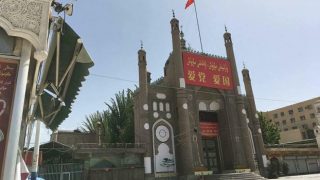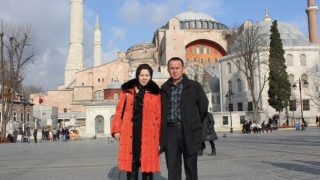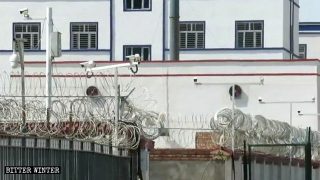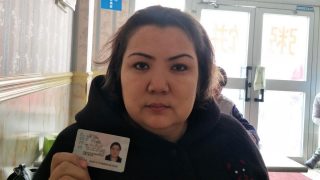An ethnic Han manager at a garment factory in Xinjiang discloses disturbing details of local Uyghurs’ abuse, disguised as bogus projects to improve their lives.
by Chang Xin
A Han Chinese man from the northern province of Shanxi works as a manager at a clothing manufacturing factory in the south of the Xinjiang Uyghur Autonomous Region. He agreed to share with Bitter Winter his experience working there. To prevent his identity, the man asked to be called Wang Hao.
Mr. Wang’s factory employs over a thousand ethnic Uyghurs. As per the central government’s orders, all residents of working age in Xinjiang must be employed, including women caring for small children. Using various forced employment practices, disguised as poverty alleviation, the CCP also indoctrinates ethnic Uyghurs in the name of “eradicating religious extremism and separatism” to transform their worldview in line with the Party ideology. Adrian Zenz, one of the foremost researchers on Xinjiang, believes that “In this context, labor is hailed as strategic means to eradicate ‘extremist’ ideologies.”
To cultivate their sense of discipline, the workers have to go for an hour’s run each morning before a 13-hour shift, which often lasts until 1 a.m. Compared to workday’s length, monthly salaries are disproportionately low: 500 RMB (about $ 70) for regular workers and only a bit over 1,000 RMB (about $ 140) for team and group leaders.
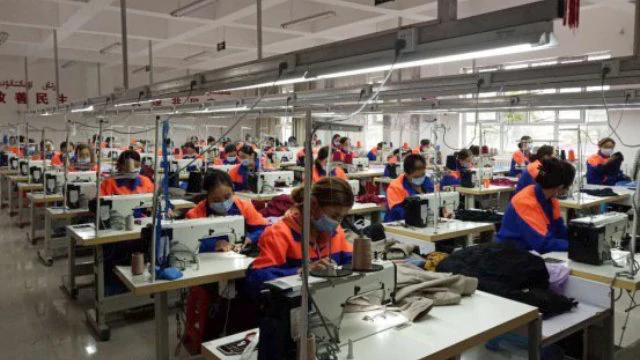
Workers live on the factory premises and are rarely allowed to return home during their days off. Some enterprises employ Uyghurs as young as 16 years old, whose fathers, about 80 percent, are held in transformation through education camps. In some cases, both parents are detained. “These children are miserable,” Wang Hao said. To his knowledge, most of the minors are sent to work by schools that sign contracts with the companies like his.
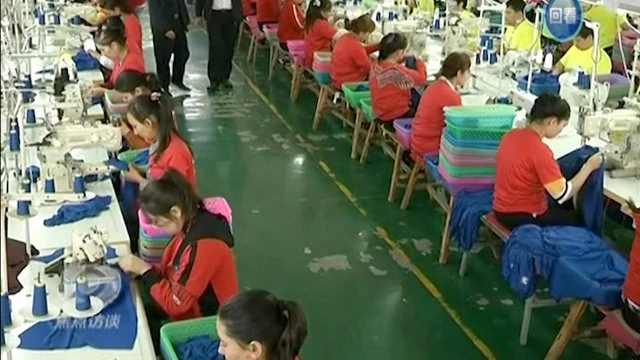
“The detained Uyghurs working in factories run by transformation through education camps are free labor—they are not paid any salaries,” Wang Hao continued. “That is why so many companies employ them. The government calls these camps ‘education training classes,’ but they are jails, where detainees must work most of the time.”
Last summer, the CCP declared that the majority of the camps’ inmates had been released and found “suitable work.” Later, large numbers of Uyghurs started being transferred to other areas of China to “solve the surplus labor force problem and alleviate poverty,” the authorities claimed.
Wang Hao believes that the government’s forced employment of Uyghurs is not as simple as it is portrayed, and it has nothing to do with poverty alleviation. “What the state wants is not to lessen poverty, but to transform Uyghurs’ ideology,” he said. “They suppress their faith by banning their customs, traditional clothing, religious festivals, or praying in mosques. Uyghurs are forced to eat pork and only allowed to believe in one religion: the Chinese Communist Party.”
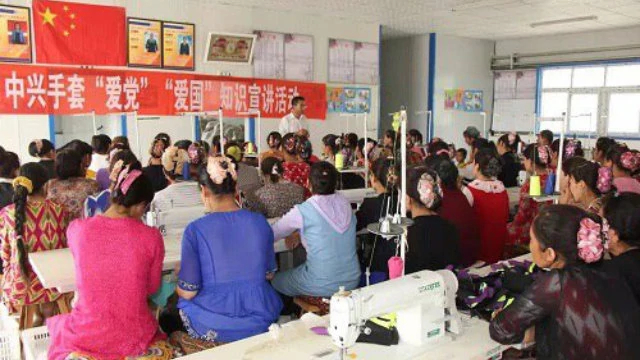
Mr. Wang believes that the CCP’s education or labor policies, adopted in the name of poverty alleviation, have decreased the quality of life for Uyghurs, not improved it.
“In the past, Uyghurs working elsewhere, like in the southern province of Guangdong, would get a salary of five to six thousand RMB (about $ 700 to 840)—ten times higher than they are paid now in Xinjiang,” Mr. Wang continued. “But the government has summoned most of them back to Xinjiang and restricts their movements. They can only leave after receiving permission, and only if no one in their families’ three generations has a police record.”
Mr. Wang knows a man who used to work in the IT sector in Guangdong Province after graduating from a university in inland China, but the government summoned him back to Xinjiang. He now works in a clothing factory on a meager salary, living an impoverished life.
The father and three sons of a family Mr. Wang knows used to work in inland China but were also summoned to Xinjiang and were detained in transformation through education camps. The wives and children of all these men, a dozen in total, are now supported by the fourth son who works in Xinjiang, and they barely make ends meet.
“As a Han person, I agree with all the claims that there are no human rights in Xinjiang,” Wang Hao concluded.
Source: Bitter Winter
